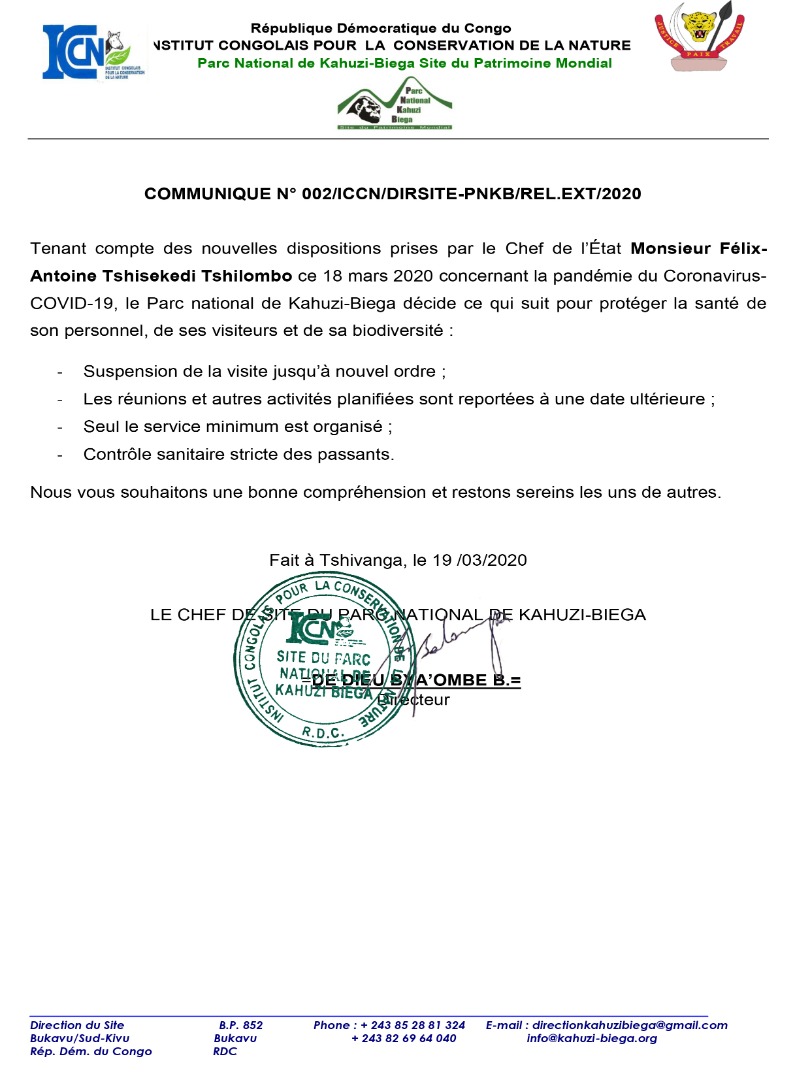Can Gorillas Be Infected with COVID-19?
Categories: Tourism, Diseases, People & Gorillas
Many gorilla friends have already asked themselves this question. So far, the answer is not yet known. However, since many other viruses are dangerous for both humans and gorillas, the probability is very high. Experts are therefore concerned for wild apes that have contact with humans or live in the vicinity of them. The fact that viruses from the Corona group can be dangerous for apes has been shown in the Ivory Coast: A few years ago, the transmission to chimpanzees was proven there.
Thomas Gillespie and Fabian Leendertz published a letter in the journal Nature on 24 March.
Statement and papers of the IUCN/SSC Primate Specialist Group
The WHO published an open letter calling for a worldwide ban on wildlife markets.
Further information available online:
Article in The Guardian, 24 March
Article in The Guardian, 25 March
A Letter from the Gorilla Doctors Executive Director regarding COVID-19 (15 March)
5 years ago, the IUCN released its Best Practice Guidelines for Health Monitoring and Disease Control in Great Ape Populations – the importance of strictly adhering to these guidelines becomes readily apparent in a crisis such as this one.
Gorilla Tourism
Gorilla tourism has been gradually halted since mid-March by the relevant authorities in all gorilla distribution areas. Rangers are allowed to continue their monitoring programmes in order to protect the gorillas but are required to maintain a larger distance from them and to wear protective face masks.
Update: On 17 June, 2020 Rwanda re-opened for gorilla tourism. Official press release

